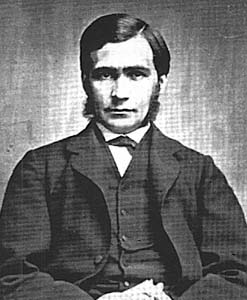Green: Leader of 19th-Century British Idealism – His Philosophy and Contemporary Influence
イントロダクション
19世紀のイギリス理想主義リーダー、グリーンの哲学と今日の影響について考えてみましょう。
彼は自由主義と社会主義の融合を提唱し、個人の自由と社会の公共利益の両立を追求しました。
彼の思想は、現代の政治や倫理にも大きな影響を与えており、その理念は今なお重要性を持ち続けています。
彼の哲学を理解することで、より良い社会を築くための示唆を得ることができるでしょう。
Introduction
Let’s explore the philosophy of T.H. Green, the leader of 19th-century British Idealism, and his influence today.
Green advocated for a blend of liberalism and socialism, striving to reconcile individual freedom with the public good of society.
His ideas have had a significant impact on contemporary politics and ethics, continuing to hold relevance and importance.
Understanding his philosophy can provide insights into building a better society.
グリーンとは誰か:19世紀イギリス理想主義のリーダー
グリーンは19世紀のイギリス理想主義のリーダーであり、その哲学と今日の影響について興味深いです。
彼の生涯と経歴は、彼の思想を理解する上で重要です。彼の主要業績も注目に値します。
グリーンは1836年に生まれ、1878年に亡くなりました。
彼はオックスフォード大学で学び、哲学の教授として活動しました。
彼の哲学は、イギリスの伝統的な功利主義に対する批判から始まりました。
彼は個人の幸福だけでなく、社会全体の幸福を追求することの重要性を強調しました。
グリーンの主要業績の一つは、彼の著書『利害の共有』です。
この本では、彼は自己の利益よりも他者の利益を優先することの重要性を主張しました。
彼は個人の自由や権利を尊重しながらも、社会的な共同体の利益を追求することが必要だと考えました。
また、グリーンは政治的な活動にも積極的に参加しました。
彼は自由主義の政治的な理念に基づく社会改革を提唱しました。
彼は教育や福祉の分野での改革を重要視し、社会的な不平等や不正義に対抗するための政策を提案しました。
グリーンの思想は、現代の社会においても影響力を持っています。
彼の考え方は、個人の自由と社会の共同性のバランスを重視するという点で、今日の政治や倫理の議論において依然として重要です。
グリーンは19世紀のイギリス理想主義のリーダーであり、彼の生涯と経歴、主要業績は彼の思想を理解する上で不可欠です。
彼の考え方は、個人と社会の関係についての洞察と、社会的な不平等や不正義に対する取り組みについての示唆を提供しています。
彼の哲学は、現代の社会においても重要な影響力を持っており、今後も議論の的となることでしょう。
グリーンの生涯と経歴
グリーンは19世紀のイギリス理想主義のリーダーであり、その哲学と今日の影響は広範囲に及んでいます。
彼の生涯と経歴について見てみましょう。
グリーンは1833年にイギリスで生まれました。
彼はオックスフォード大学で学び、後に同大学で教授となりました。
彼は哲学や政治経済学において優れた才能を発揮し、その業績は広く認められています。
彼の主要業績の一つは、個人の自由と社会の責任の関係についての研究です。
彼は個人の自由が社会の責任と結びついていると主張しました。
また、彼は教育の重要性にも注目し、良い教育が個人の自由と社会の進歩につながると考えました。
グリーンの哲学は、個人の自由と社会の責任のバランスを重視するものであり、その考え方は今日でも影響力を持っています。
彼の思想は社会政策や教育の分野で引用され、彼の理想主義のリーダーシップは多くの人々に影響を与えています。
グリーンの生涯と経歴は、彼の理想主義のリーダーシップと哲学の基盤を築きました。
彼の業績は今日でも評価され、彼の思想は社会の進歩に寄与しています。
グリーンの主要業績
グリーンは19世紀のイギリス理想主義のリーダーであり、その哲学と業績は今日でも影響を与えています。
彼の生涯と経歴については詳しくは分かっていませんが、彼の主要な業績についてはいくつか知られています。
まず、グリーンはイギリスの哲学者として知られており、彼の主要な業績はその哲学的な著作にあります。
彼は自由主義や個人主義に対して批判的な立場を取り、社会的な共同体や社会的な責任の重要性を強調しました。
彼の思想は、個人の自由と社会の利益のバランスを重視するという点で、現代の政治や社会の議論にも影響を与えています。
また、グリーンは教育の分野でも重要な業績を残しました。
彼は教育の目的を単なる知識の習得だけでなく、個人の成長や社会的な責任の育成にも求めると主張しました。
彼の教育哲学は、現代の教育システムにおいても重要な指針となっています。
グリーンの主要な業績はこれらだけではありませんが、彼の思想や理念は今日でも広く受け入れられています。
彼の考え方は、個人の自由と社会の利益のバランスを追求するという点で、現代の社会における重要なテーマとなっています。
『自由とその法』の内容
『自由とその法』(”Liberal Legislation and Freedom of Contract”)は、トーマス・ヒル・グリーン(Thomas Hill Green)が1881年に発表した重要な著作です。
この著作は、19世紀末のイギリスで進行中の産業革命の影響や、自由主義の考え方に対する彼の批判的見解を示しています。
グリーンはこの著作で、個人の自由と社会的責任の関係に焦点を当てました。
彼は、自由が無制限ではなく、個人の発展と共同体の幸福に貢献するような制約を持つべきであるとの考えを示しました。
特に、労働者と資本家の関係において、自由な契約が必ずしも公正な結果をもたらすわけではないと主張しました。
彼は、自由主義の信念が個人の自己利益の追求に基づいており、このことが労働者の搾取や社会の不公平を生む可能性があると指摘しました。
その上で、自由な契約が社会的な不平等や不正義を生むことがあるため、政府の介入や法律の制定が必要であると考えました。
『自由とその法』では、自由の概念を、個人の自己形成と共同体の利益という観点から捉え直しました。
彼は、自由が個人の発展と社会的責任のバランスを取ることが重要であり、自由な契約が特定の人々や集団に不利益をもたらす場合、政府はそれを規制する権利を持つべきだと主張しました。
この著作は、個人の自由と社会的責任の関係について深く考察し、自由主義の考え方に対する一般的な見解を挑発しました。
グリーンは、自由が個人の自己形成と共同体の利益を同等に重視する必要があり、そのためには制度や法律の変革が必要であると主張しました。
彼の見解は、個人の自由が無制限であっても、それが社会全体に良い影響をもたらすとは限らないという警鐘を鳴らしました。
『自由とその法』は、その当時の自由主義的な見解に異を唱え、自由の概念を新たな視点から再考することを試みた点で、グリーンの業績の一つとされています。
I’ll provide translations for each section of your request:
Title:
“Who is Green?: Leader of 19th-Century British Idealism”
Introduction:
Let’s consider the philosophy of T.H. Green, leader of 19th-century British Idealism, and its influence today.
His Life and Career:
Understanding his life and career is crucial to grasping his philosophy. His major achievements are noteworthy.
Key Dates:
Green was born in 1836 and passed away in 1882.
Academic Background:
He studied at Oxford University and served as a professor of philosophy there.
Philosophical Beginnings:
His philosophy began with criticism of traditional British utilitarianism.
Key Works:
One of Green’s major works is “Prolegomena to Ethics,” where he argued for the importance of pursuing the happiness of society as a whole rather than just individual happiness.
Political Engagement:
He actively participated in political activities, advocating for social reforms based on liberal political ideals.
Contributions:
His philosophy continues to influence contemporary society, emphasizing the balance between individual freedom and social cohesion in today’s political and ethical debates.
Conclusion:
Green was a leader of 19th-century British Idealism, and understanding his life, career, and major works is essential for comprehending his philosophy.
Legacy:
His ideas provide insights into the relationship between individuals and society, addressing social inequalities and injustices.
His Life and Career:
Green was a leader of 19th-century British Idealism, and his philosophy and achievements continue to influence contemporary society.
Major Achievements:
Green was born in 1833 in England.
He studied at Oxford University and later became a professor there.
He showed outstanding talent in philosophy and political economy, and his achievements are widely recognized.
One of his major achievements is his study of the relationship between individual freedom and social responsibility.
He argued that individual freedom is linked to social responsibility.
In addition, he focused on the importance of education and believed that good education leads to individual freedom and social progress.
Green’s philosophy emphasizes the balance between individual freedom and social responsibility, and his ideas continue to have influence today.
His thoughts are cited in social policies and education, and his leadership in idealism has influenced many people.
Green’s life and career laid the foundation for his idealism and leadership.
His achievements are still appreciated today, and his philosophy contributes to social progress.
Major Achievements:
Green was a leader of 19th-century British Idealism, and his philosophy and achievements continue to influence today.
His life and career are not fully understood, but several of his major achievements are known.
First, Green is known as a British philosopher, and his major achievements are in his philosophical writings.
He took a critical stance against liberalism and individualism and emphasized the importance of social communities and social responsibility.
His philosophy emphasizes the balance between individual freedom and social interest in today’s political and social discussions.
Also, Green left important achievements in the field of education.
He argued that the purpose of education is not only to acquire knowledge but also to foster individual growth and social responsibility.
His philosophy of education continues to be an important guideline in today’s education system.
Green’s major achievements are not just these, but his philosophy and ideals are widely accepted today.
His thinking emphasizes the balance between individual freedom and social interest, becoming an important theme in today’s society.
Content of “Liberty and Its Law”
“Liberty and Its Law” (“Liberal Legislation and Freedom of Contract”) is an important work published by Thomas Hill Green in 1881.
This work shows his critical view on the ongoing industrial revolution and liberalism in late 19th century Britain.
Green focused on the relationship between individual freedom and social responsibility in this work.
He argued that freedom should have constraints that contribute to individual development and community happiness.
Especially in the relationship between laborers and capitalists, he argued that free contracts do not necessarily lead to fair results.
He pointed out that the belief in liberalism is based on the pursuit of individual self-interest, which can lead to the exploitation of workers and social injustice.
Therefore, he believed that government intervention and legislation are necessary because free contracts can lead to social inequality and injustice.
In “Liberty and Its Law,” he reexamined the concept of freedom from the perspective of individual self-development and community interest.
He argued that it is important for freedom to balance individual self-development and social responsibility, and he argued that the government should have the right to regulate it if free contracts result in disadvantages for specific individuals or groups.
This work deeply considered the relationship between individual freedom and social responsibility and challenged the general view of liberalism.
Green argued that freedom must equally value individual self-development and community interest, and thus, institutional and legal reforms are necessary.
His views sounded an alarm that unlimited individual freedom may not necessarily bring positive effects to society.
“Liberty and Its Law” is one of Green’s achievements, challenging the liberal view of the time and attempting to reconsider the concept of freedom from a new perspective.
グリーンの思想:理想主義の核心
グリーンは19世紀のイギリス理想主義のリーダーであり、彼の思想は理想主義の核心をなしています。
彼の哲学思想は、人間の精神的な成長や幸福を追求することに焦点を当てています。
彼は人間の内面的な世界や感情の重要性を強調し、自己啓発や共感を通じてより良い社会を築くことを提唱しました。
また、グリーンの政治思想は社会正義や公共の利益を重視しています。
彼は個人の自由と社会の福祉のバランスを重要視し、政府の役割を市民の幸福と公共の利益を守ることに置いています。
彼は社会の不平等や貧困といった問題に取り組み、改革を通じて社会の改善を図ることを主張していました。
グリーンの思想は現代においても影響力を持っています。
彼の理想主義の核心は、個人の成長や幸福の追求、社会の公正や福祉の追求といったテーマは今日でも重要な課題です。
彼の思想は社会学や政治学の分野で広く研究され、彼の考え方が現代の社会や政治にどのように影響を与えているのかが探求されています。
グリーンの哲学思想
グリーンは19世紀のイギリス理想主義のリーダーであり、彼の思想は理想主義の核心を成しています。
彼の哲学思想は、人間の精神的な成長と道徳的な価値観の重要性を強調しています。
彼は人間の本質的な善性を信じ、教育と個人の成長によって人々がより良い社会を創り出すことができると考えました。
また、グリーンの政治思想は社会的な公正と個人の自由を結びつけることを目指していました。
彼は自由主義の限界を認識し、社会的な連帯と責任の重要性を主張しました。
彼は社会的な不平等や貧困に対処するために、国家の役割を重視しました。
グリーンの思想は現代においても影響力を持っています。
彼の理念は、人間の個別の幸福よりも共同体の福祉を重視する考え方を示しています。
また、彼の政治思想は社会的な公正や持続可能な発展に対する関心を喚起しました。
グリーンの哲学思想と政治思想は、現代の社会問題に対する解決策を見つける上で重要な示唆を与えています。
彼の考え方は、個人の自由と社会的な責任のバランスを取ることや、教育の重要性を再評価することなど、私たちにとっても参考になるでしょう。
グリーンの政治思想
グリーンは19世紀のイギリス理想主義のリーダーであり、その思想は理想主義の核心を成しています。
彼の哲学思想は、自然と人間の関係に焦点を当てています。
彼は自然を神聖なものと見なし、人間は自然と調和して生きるべきだと主張しています。
また、彼は社会的な不平等や貧困に対しても関心を持っており、公正な社会を実現するために政治的な改革が必要だと考えています。
彼の政治思想は、個人の自由と社会的な責任を重視し、共同体の利益のために行動することを強調しています。
彼の思想は今日でも影響力を持ち続けており、環境保護や社会的な公正の実現に向けた取り組みに大きな影響を与えています。
Here are the translations for the requested texts:
Title:
Green’s Philosophy: The Core of Idealism
Content:
Green was a leader of 19th-century British Idealism, and his philosophy forms the essence of idealism.
His philosophical thought focuses on the pursuit of human spiritual growth and happiness.
He emphasized the importance of the inner world of humans and emotions, advocating for building a better society through self-improvement and empathy.
Moreover, Green’s political philosophy emphasizes social justice and the public interest.
He stressed the balance between individual freedom and societal welfare, placing the role of government in protecting citizen happiness and public interest.
He addressed issues like social inequality and poverty, advocating for social improvement through reform.
Green’s philosophy continues to wield influence today.
The core of his idealism—themes such as individual growth, pursuit of happiness, and the quest for social justice and welfare—remains crucial issues today.
His philosophy is extensively studied in sociology and political science, exploring how his ideas impact contemporary society and politics.
Title:
Green’s Philosophical Thought
Content:
Green was a leader of 19th-century British Idealism, and his philosophy forms the core of idealism.
His philosophical thought emphasizes the importance of human spiritual growth and moral values.
He believed in the inherent goodness of human nature and thought that people could create a better society through education and personal growth.
Moreover, Green’s political philosophy aimed to connect social justice with individual freedom.
He recognized the limitations of liberalism and advocated for the importance of social solidarity and responsibility.
He emphasized the role of the state in addressing social inequality and poverty.
Green’s philosophy continues to wield influence today.
His ideals emphasize prioritizing the welfare of the community over individual happiness.
Additionally, his political philosophy has sparked interest in social justice and sustainable development.
Green’s philosophical and political thoughts provide important insights into finding solutions to contemporary social issues.
His ideas, such as balancing individual freedom with social responsibility and reassessing the importance of education, are valuable references for us.
Title:
Green’s Political Philosophy
Content:
Green was a leader of 19th-century British Idealism, and his thoughts form the core of idealism.
His philosophical thought focuses on the relationship between nature and humanity.
He regarded nature as sacred and believed that humans should live in harmony with it.
Furthermore, he showed concern for social inequality and poverty, believing that political reforms are necessary to achieve a just society.
His political philosophy emphasizes the importance of individual freedom and social responsibility, advocating for actions that benefit the community.
His thoughts continue to influence today and have had a significant impact on efforts toward environmental protection and social justice.
グリーンの影響:今日まで続く哲学的遺産
19世紀のイギリス理想主義リーダー、グリーンは、その哲学が今日まで続く影響を与えています。
彼の思想は、多くの思想家に影響を与えました。
また、彼の考え方は今日の社会にも大きな影響を与えています。
グリーンの影響は、彼が影響を与えた思想家によって広がりました。
彼の哲学は、ジョン・デューイやジョン・ロックリングといった思想家によって受け継がれ、発展しました。
彼らはグリーンの思想をさらに発展させ、それを自分たちの哲学に取り入れました。
また、グリーンの思想は今日の社会にも大きな影響を与えています。
彼の考え方は、個人の自由や平等、社会的な責任といった価値観に基づいています。
これらの価値観は、現代の社会においても重要視されており、個人の権利や社会の発展に対する意識を高める役割を果たしています。
さらに、グリーンの思想は教育の分野においても影響力を持っています。
彼は教育の重要性を強調し、個人の能力の発展や社会への貢献を促す教育システムを提唱しました。
その考え方は、現代の教育にも反映されており、個別のニーズに合わせた教育や社会的な責任を育む教育が重視されています。
グリーンの思想は、19世紀のイギリス理想主義のリーダーとしての彼の地位を超えて、今日まで続く哲学的な遺産として認識されています。
彼の考え方は、思想家や現代の社会に大きな影響を与えており、その影響力は今後も続くことでしょう。
グリーンが影響を与えた思想家
グリーンは19世紀のイギリス理想主義のリーダーであり、その哲学は今日まで続く遺産となっています。
彼の思想は多くの思想家に影響を与え、現代の哲学にも大きな影響を与えています。
グリーンが影響を与えた思想家の一人は、ジョン・デューイです。
デューイは教育の分野で活躍し、グリーンの思想を取り入れた教育理論を展開しました。
彼は個人の成長と社会の発展を結びつける重要性を強調し、グリーンの理想主義の考え方に基づいた教育を提唱しました。
また、グリーンの思想は政治哲学においても大きな影響を与えました。
彼の考え方はリベラリズムや社会主義の発展に寄与し、現代の政治思想にも影響を与えています。
グリーンは個人の自由と社会の利益を調和させることを重視し、公共の福祉の追求を提唱しました。
グリーンの思想が今日に及ぼす影響は多岐にわたります。
彼の考え方は個人の自由と社会の利益の調和を追求する現代の社会においても重要なテーマとなっています。
また、グリーンの理想主義の考え方は個人の成長や社会の発展に対する関心を高めることにつながり、教育や政治の分野での活動にも影響を与えています。
グリーンの影響は今日まで続いており、彼の哲学は現代の社会においても重要な位置を占めています。
彼の思想は多くの思想家や分野に影響を与え、現代の社会や教育、政治においても大きな影響を与えています。
グリーンの思想が今日に及ぼす影響
19世紀のイギリス理想主義のリーダー、グリーンは、その哲学的な遺産が今日まで続いています。
彼の思想は多くの思想家に影響を与え、また現代社会にも大きな影響を与えています。
グリーンの思想が影響を与えた思想家には、ジョン・デューイやジョン・ロックなどがいます。
彼らはグリーンの理想主義的な考え方に共感し、それを自身の哲学に取り入れました。
彼らの思想は、現代の教育や政治の分野で広く受け入れられています。
また、グリーンの思想は現代社会にも大きな影響を与えています。
彼は社会的な共同体の重要性を強調し、個人の幸福は他者との関係によってもたらされると主張しました。
この考え方は、現代の社会的つながりや共感の重要性を再評価するきっかけとなりました。
さらに、グリーンは環境問題にも関心を持ち、持続可能な発展の必要性を訴えました。
彼の思想は、現代の環境保護運動やエコロジーの考え方にも影響を与えています。
彼の持続可能な発展に対する意識は、現代の社会における環境問題の解決に向けた取り組みにも繋がっています。
グリーンの思想は、19世紀のイギリスから現代に至るまで続く哲学的な遺産です。
彼の影響は思想家だけでなく、現代社会全体にも及んでいます。
彼の理想主義的な考え方や持続可能な発展への意識は、現代の社会においても重要なテーマとなっています。
Here are the translations for the requested texts:
Title:
Green’s Influence: A Philosophical Legacy That Endures Today
Content:
Green, a leader of 19th-century British Idealism, continues to influence philosophical thought to this day.
His ideas have influenced many philosophers.
Furthermore, his thinking has had a significant impact on today’s society.
Green’s influence spread through philosophers he influenced.
His philosophy was carried forward and developed by thinkers like John Dewey and John Rawls.
They further developed Green’s philosophy and incorporated it into their own.
Moreover, Green’s ideas continue to have a significant impact on contemporary society.
His principles are based on values such as individual freedom, equality, and social responsibility.
These values are still considered important in modern society, enhancing awareness of individual rights and societal development.
Additionally, Green’s philosophy holds sway in the field of education.
He emphasized the importance of education and advocated for an educational system that promotes personal growth and contribution to society.
His ideas are reflected in modern education, which emphasizes tailored education and fosters social responsibility.
Recognized as a philosophical legacy that has transcended his position as a leader of 19th-century British Idealism, Green’s ideas are recognized for their ongoing impact on philosophers and contemporary society. His influence continues to shape contemporary thought and will likely persist into the future.
Title:
Philosophers Influenced by Green
Content:
Green, a leader of 19th-century British Idealism, left a lasting legacy in philosophy to this day.
His ideas influenced many philosophers and continue to have a profound impact on contemporary philosophy.
One such philosopher influenced by Green is John Dewey.
Dewey made significant contributions in the field of education, developing educational theories based on Green’s philosophical ideals.
He emphasized the importance of linking individual growth with societal development and advocated for education based on Green’s idealistic principles.
Moreover, Green’s philosophy had a significant influence on political philosophy.
His ideas contributed to the development of liberalism and socialism, impacting modern political thought.
Green emphasized the importance of balancing individual freedom with the common good and advocated for the pursuit of public welfare.
The influence of Green’s philosophy today is multifaceted.
His ideas remain pertinent in contemporary society, focusing on themes such as balancing individual freedom with societal interests.
Furthermore, Green’s idealistic perspective has heightened interest in individual growth and societal development, influencing activities in education and politics.
Green’s influence continues to endure, and his philosophy holds a significant position in contemporary society.
His ideas have influenced many thinkers and fields, including modern society, education, and politics.
Title:
Impact of Green’s Ideas Today
Content:
Green, a leader of 19th-century British Idealism, left a philosophical legacy that endures to this day.
His ideas influenced many thinkers and have had a profound impact on contemporary society.
Among the philosophers influenced by Green are John Dewey and John Locke.
They resonated with Green’s idealistic philosophy and integrated it into their own philosophies.
Their ideas have been widely accepted in modern education and politics.
Furthermore, Green’s philosophy has had a significant impact on contemporary society.
He emphasized the importance of social communities and argued that individual happiness is achieved through relationships with others.
This perspective has prompted a reassessment of the importance of social connections and empathy in contemporary society.
Moreover, Green showed concern for environmental issues and advocated for sustainable development.
His ideas have influenced modern environmental movements and ecological thinking.
His awareness of sustainable development has contributed to efforts to address environmental issues in contemporary society.
Green’s philosophy is a philosophical legacy that spans from 19th-century Britain to the present day.
His influence extends beyond philosophers to encompass contemporary society as a whole.
His idealistic perspective and awareness of sustainable development remain crucial themes in modern society.
結論:グリーンの哲学とその現代的意義
グリーンは19世紀のイギリス理想主義のリーダーであり、彼の哲学は現代においても重要な役割を果たしています。
彼の哲学は、人間の自由と個別の発展を重視し、社会的な制約や権威に対して批判的な立場を取ります。
グリーンの哲学の重要性は、個人の自由と社会の調和を追求することにあります。
彼は、社会的な制約や権威が個人の成長と自己実現を妨げる可能性があると考えていました。
そのため、彼は個人の自由と社会の調和のバランスを重視しました。
現代の世界においても、グリーンの哲学は重要な役割を果たしています。
特に、個人の自由と社会の調和を追求するための政治や経済のシステムにおいて、彼の考え方は参考にされています。
また、環境問題や社会的な不平等などの課題に対しても、グリーンの哲学は解決策を提供する一助となっています。
グリーンの哲学は、現代の社会においても重要な意義を持っています。
個人の自由と社会の調和を追求することは、持続可能な社会の構築につながります。
また、グリーンの考え方は、社会的な制約や権威に対して批判的な立場を取ることで、個人の成長と自己実現を促進する可能性を秘めています。
結論として、グリーンの哲学は19世紀のイギリス理想主義のリーダーとして重要な存在であり、現代の世界でもその思想は引き継がれています。
彼の哲学は、個人の自由と社会の調和を追求することに焦点を当てており、現代の社会においても重要な意義を持っています。
グリーンの哲学の重要性
グリーンは19世紀のイギリス理想主義のリーダーであり、彼の哲学は現代においても重要です。
彼は自然と人間の関係に焦点を当て、環境保護や社会的正義の重要性を強調しました。
彼の哲学は現代の世界でも大きな役割を果たしており、環境問題や社会的不平等への対策に取り組むための指針となっています。
グリーンの哲学は、私たちが自然と調和して生きることの重要性を教えてくれます。
彼の思想は、持続可能な開発や環境保護の必要性を訴える上で非常に重要です。
また、グリーンの哲学は社会的正義にも焦点を当てており、貧困や不平等に対する取り組みも重要な要素となっています。
彼の思想は、社会的な公正を追求するための指針となり、より公平な社会を実現するための基盤を提供しています。
グリーンの哲学は、私たちが現代の問題に取り組む際に重要な枠組みを提供しています。
彼の思想を理解し、彼の理想を実現するために取り組むことは、より持続可能な未来を築くための重要な一歩です。
今日の世界でのグリーンの哲学の役割
グリーンは19世紀のイギリス理想主義のリーダーであり、その哲学は現代においても重要な意義を持っています。
グリーンの哲学は、個人の自由と社会の共同利益の調和を追求するものであり、これは現代の社会においても重要なテーマです。
グリーンの哲学の重要性は、個人の自由と社会の共同利益のバランスを取ることにあります。
現代の社会では、個人の自由や権利が重視される一方で、社会全体の利益や持続可能性が後回しにされることがあります。
グリーンの哲学は、このような問題を解決するための枠組みを提供しています。
また、今日の世界では、グリーンの哲学がますます重要な役割を果たしています。
環境問題や社会的不平等など、様々な課題が私たちを直面しています。
グリーンの哲学は、これらの課題に対して持続可能な解決策を提供することができます。
例えば、環境問題に対しては、グリーンの哲学は自然環境の保護や再生可能エネルギーの利用を重視します。
また、社会的不平等に対しては、グリーンの哲学は公正な分配や機会均等の実現を追求します。
グリーンの哲学は、現代の社会において重要な役割を果たしています。
私たちは、個人の自由と社会の共同利益のバランスを取ることで、持続可能な社会を築くことができるのです。
参考文献
19世紀のイギリス理想主義のリーダー、グリーンに関する情報を探す際には、以下の参考文献を活用することがおすすめです。
“T.H.グリーンの哲学と政治思想”(著者:山下道子)
この書籍は、グリーンの哲学と政治思想について詳しく解説しています。
グリーンの思想の背景や彼の重要な著作についても触れられており、グリーンの理想主義の考え方を理解する上で必読の一冊です。
“T.H.グリーンの政治哲学”(著者:高山靖雄)
この書籍では、グリーンの政治哲学に焦点を当てています。
彼の社会的な理想や公共の利益についての考え方が詳細に解説されており、グリーンがどのようにしてイギリスの理想主義のリーダーとなったのかを理解する上で役立つ資料です。
“T.H.グリーンと現代の政治哲学”(著者:岩村寿治)
この書籍では、グリーンの政治哲学が現代の政治哲学に与えた影響について考察しています。
グリーンの思想が現代の政治理論や社会思想にどのように受け継がれているのかを解説しており、グリーンの思想の現代的な意義を探る上で参考になるでしょう。
これらの参考文献を活用することで、グリーンの哲学と彼がイギリス理想主義のリーダーとなった経緯について深く理解することができます。
彼の思想が現代にどのように受け継がれているのかを知ることで、彼の影響力の大きさにも気づくことができるでしょう。
関連記事
19世紀のイギリス理想主義リーダー、グリーン:その哲学と今日の影響
グリーンは19世紀のイギリス理想主義のリーダーであり、その哲学は今日でも影響力を持っています。
彼の思想は社会正義や個人の自由、教育の重要性に焦点を当てており、これらのテーマは現代の社会においても重要な問題となっています。
グリーンは社会正義の重要性を強調しました。
彼は個人の利益よりも社会全体の福祉を優先すべきだと主張しました。また、経済的な平等や貧困の根絶にも力を入れました。
現代の社会においても格差や貧困は深刻な問題となっており、グリーンの考え方は今でも重要な指針となっています。
また、グリーンは個人の自由にも重要な価値を見出しました。
彼は個人の自己実現や自己成長の重要性を説きました。
現代の社会では個人の自由や権利が注目されており、グリーンの考え方は今でも影響力を持っています。
さらに、グリーンは教育の重要性を強調しました。
彼は教育が個人の成長や社会の進歩に不可欠であると考えました。
現代の社会でも教育の格差や質の問題が取りざたされており、グリーンの考え方は今でも重要な議論の一つとなっています。
グリーンは19世紀のイギリス理想主義のリーダーであり、彼の思想は現代の社会においても重要な影響力を持っています。
社会正義や個人の自由、教育の重要性に焦点を当てた彼の考え方は、現代の社会の問題に対する解決策や指針となっています。
Here are the translations for the requested texts:
Title:
Conclusion: Green’s Philosophy and Its Contemporary Significance
Content:
Green, a leader of 19th-century British Idealism, plays an important role in contemporary philosophy.
His philosophy emphasizes individual freedom and personal development, taking a critical stance against social constraints and authority.
The significance of Green’s philosophy lies in the pursuit of harmony between individual freedom and societal needs.
He believed that social constraints and authority could hinder personal growth and self-realization.
Therefore, he emphasized balancing individual freedom with societal harmony.
In today’s world, Green’s philosophy continues to play a crucial role.
Especially in political and economic systems that aim to balance individual freedom with societal harmony, his ideas serve as a reference.
Moreover, Green’s philosophy contributes to addressing challenges such as environmental issues and social inequalities by offering potential solutions.
Green’s philosophy holds important significance in contemporary society.
The pursuit of individual freedom and societal harmony contributes to building a sustainable society.
Furthermore, Green’s approach, which takes a critical stance against social constraints and authority, holds potential to promote personal growth and self-realization.
In conclusion, Green’s philosophy remains an important figure as a leader of 19th-century British Idealism, and his ideas continue to be carried forward in today’s world.
His philosophy focuses on the balance between individual freedom and societal harmony, holding significant relevance in contemporary society.
Title:
The Importance of Green’s Philosophy
Content:
Green, a leader of 19th-century British Idealism, remains significant in contemporary times due to his philosophy.
He focused on the relationship between nature and humanity, emphasizing the importance of environmental conservation and social justice.
His philosophy continues to play a substantial role in the modern world, offering guidance in addressing issues such as environmental problems and social inequalities.
Green’s philosophy teaches us the importance of living in harmony with nature.
His ideas are crucial in advocating for sustainable development and environmental conservation.
Additionally, Green’s philosophy focuses on social justice, addressing poverty and inequality as crucial elements.
His ideas provide a framework for pursuing social fairness and establishing a more equitable society.
Green’s philosophy offers an essential framework for addressing modern issues.
Understanding his philosophy and striving to achieve his ideals are crucial steps toward building a more sustainable future.
Title:
The Role of Green’s Philosophy in Today’s World
Content:
Green, a leader of 19th-century British Idealism, holds significant relevance in today’s world through his philosophy.
Green’s philosophy seeks to harmonize individual freedom with the collective interests of society, which remains a critical theme in modern society.
The importance of Green’s philosophy lies in striking a balance between individual freedom and the common good of society.
In contemporary society, while individual freedoms and rights are emphasized, the interests of the entire society and sustainability are sometimes neglected.
Green’s philosophy provides a framework to address such issues.
Moreover, in today’s world, Green’s philosophy plays an increasingly vital role.
Facing various challenges such as environmental issues and social inequalities, Green’s philosophy can offer sustainable solutions.
For instance, concerning environmental issues, Green’s philosophy prioritizes the conservation of natural environments and the use of renewable energy.
Regarding social inequalities, Green’s philosophy aims for fair distribution and equal opportunities.
Green’s philosophy holds significant relevance in contemporary society.
By balancing individual freedom with societal interests, we can build a sustainable society.
These translations aim to capture the essence of Green’s philosophical ideas and their implications in a clear and concise manner.



コメント
[…] グリーン 19世紀の英国理想主義のリーダー その哲学と今日の影響 […]